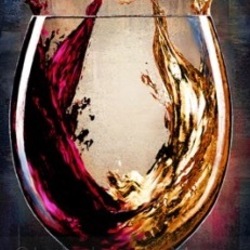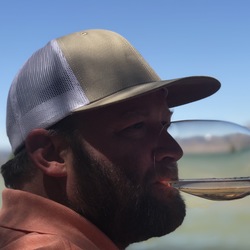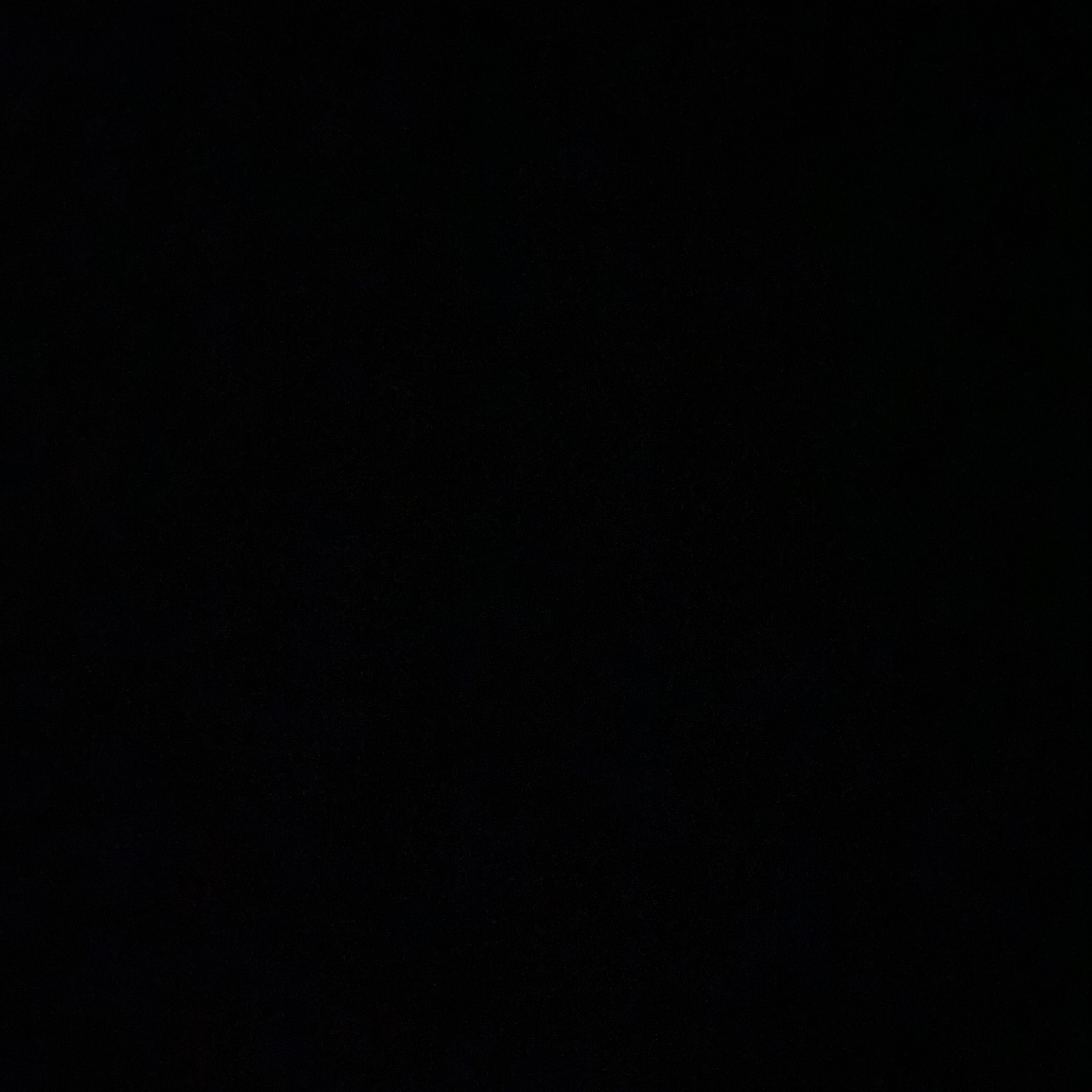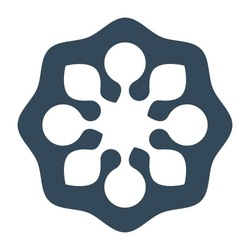A Table De Stéphane Derenoncourt
Château Peyreau
Saint Emilion Red Bordeaux Blend 2012
Pomegranate, black currant and mocha with a pinch of dishwater. Ample and round with molten tannins. A little bitter aftertaste on the tongue. I'm a big fan of Stéphane Derenoncourt. Never disappoints. — 8 years ago
Villa Symposia
L'Origine Coteaux du Languedoc Syrah Blend 2012
Villa Symposia is the Languedoc label from Éric Prissette, the founder of Château Rol Valentin. The winemaking is overseen by Stéphane Derenoncourt. And from what I gathered, L'Origine is the flagship, or at least 'the' high-end cuvée here. The importer label indicates it's 95% Syrah, 5% Grenache (but a blog post from Taste Languedoc mentioned Carignan was added to the blend in 2012). The Syrah comes from the oldest vines of the estate, ~50 years old.
Opens with a noticeable amount of Brett, which can go either way for me. I view Brett like abstract art... done well and it's a beautiful lens to which to view a wine. However, when it's done poorly it's shit (literally). This was done very well. The pungent barnyard, stinky cheese, and saddle leather arrive heavily seasoned with baking spices, noticeably cinnamon, and herbs, including rosemary and tarragon. Ripe, dark bramble fruit, lavender oil, and pine resin pervade the palate and continue through the lengthy and structured finish. An extraordinary mix of the old and new world, while maintaining a clear sense of terroir, and providing an intensely vivid experience. It really hits its stride after 1.5 hours. Fair warning, if you don't like Brett at all then I wouldn't recommend this wine... however if you've ever liked a wine because of Brett, I suspect you'll enjoy. — 9 years ago
A Table de Stéphane Derenoncourt
Diligo des Trois Origines St. Emilion Grand Cru 2009
Love a good Bordeaux on Sunday afternoon ... Blackberry, dark fruit — 11 years ago
Château Poujeaux
Moulis en Médoc Red Bordeaux Blend 2007
First, let me say the 07 Bordeaux vintage was largely frowned upon by professional critics. When I tasted it upon release, I had some doubts. However, I have said many times, in all difficult vintages anywhere, there are still producers that made good wine. Especially, if you give them time to evolve in bottle. This 07 has blossomed with 10 years in bottle and an absolutely perfect steak wine.
The nose reveals; smoldering ambers, dry crushed rocks, limestone minerals, ripe blackberries, black cherries, black raspberries, baked strawberries, black plum, floral blueberries, dark fruit liqueur, leather, cedar to saddle-wood, dark rich soils, stones, anise, graphite, old cigar with ash, hints of mushroom, steeped tea, fresh & withering red & dark floral bouquet.
The body is beautiful with; rich, round, velvety, smooth, tarry tannins. This 07 Poujeaux is in top form with plenty of life left ahead...another 7-10years easily. The structure, tension, length and balance are nicely knitted together. It glides effortlessly over the palate. A combination of dark currants & cassis. Ripe blackberries, black cherries, black raspberries, bright cherries, baked strawberries, black plum, floral blueberries, dark fruit liqueur, dark chocolate, mocha bar, vanilla, clove, dark spice, leather, cedar to saddle-wood, dark rich soils, stones, smoldering ambers, dry crushed rocks, dry clay, limestone minerals, dry brush, anise, graphite, old cigar with ash, touch of pepper, hints of mushroom, steeped tea, beautifully, fragrant, violets, lavender, fresh & withering red & dark floral bouquet. The acidity is nicely balanced in the wine. The finish without the steak shows dusty, grainy tannins, good balance in fruit & earth, elegant, ripe fruit and persistent on the palate.
Photos of, the unassuming Chateau Poujeaux by Bordeaux standards, the rootstock & soil structure of the Poujeaux terroir, Cellar with concrete tanks & large oak vats and a wide shot of the Estate.
Producer history and notes...Chateau Poujeaux’s history can be traced back to the 16th Century. At that time, the owner of Chateau Latour, Gaston De L’Isle, owned the estate. Over the centuries, Chateau Poujeaux, like numerous Bordeaux estates has been the property of a multitude of owners.
In fact, the owner of Chateau Beychevelle Marquis François Etienne de Brassier was one of owners. Over the centuries, Chateau Poujeaux was bought, sold, split up and divided. It was not until 1921, when the Theil family became the owners of the property that all the previously divided sections were brought back together again.
The modern era for Chateau Poujeaux began more recently. It started in 2008, when Jean Theil sold Chateau Poujeaux to the Cuvelier family, who were already owners of Clos Fourtet in St. Emilion. Once the Cuvelier family purchased, Mathieu Cuvelier took charge and things changed for the better.
The winemaking facilities were modernized and the farming technique used in the vineyards of Chateau Poujeaux were also changed.
They reduced yields and began picking later, giving them riper fruit. They also moved to an organic vineyard management approach and are looking at biodynamic farming as well. All of this work in the vineyards have helped push the wine quality of the estate. You only need to open and taste some their newer vintages. You’ll notice the improvement in fruit quality and the winemaking practices.
The 68 hectare Moulis vineyard of Chateau Poujeaux is planted to 50% Cabernet Sauvignon, 40% Merlot, 5% Cabernet Franc and 5% Petit Verdot. The terroir is gravel based soils, typical of the area as show in the above photo. The average age of the vines is close to 35 years, although some vines are older.
The debut vintage under the Cuvelier family was the 2008. At Chateau Poujeaux, they are practicing serious vineyard management with the help of Stéphane Derenoncourt, who works with numerous Bordeaux Winemakers on both banks, including the Cuvelier’s property in St. Emilion, Clos Fourtet.
Chateau Poujeaux, fruit is whole berry fermented in a combination of small stainless steel vats, oak barrels and cement tanks with a 25-day cuvaison. Chateau Poujeaux is aged in about 40% new, French oak barrels for an average of 12 months. On average, Chateau Poujeaux produces close to 25,000 cases per year. — 7 years ago


Château La Gaffelière
Saint-Émilion Red Bordeaux Blend 2016
The 2016 La Gaffelière is superb. Vivid and precise, with layers of nuance, the 2016 is a wine of real clarity. Blood orange, lavender, rose petal and mint add brightness to this stunningly beautiful Saint-Émilion. La Gaffelière is a blend of 70% Merlot and 30% Cabernet Franc, and it is the Franc that gives the wine so much character and complexity. This is just an irresistibly captivating Saint-Émilion. Stéphane Derenoncourt and Simon Blanchard consult. (Antonio Galloni, Vinous, January 2019) — 6 years ago
Château Marsyas
Red Blend 2011
2011 vintage. 65% cabernet sauvignon, 20% syrah, 10% merlot, 5% petit verdot. From the southern part of the Bekaa Valley, at 900 meters altitude. Young estate (first vintage 2007 it seems), consulted by Stéphane Derenoncourt. Very dark red colour. Intense nose reminiscent of fresh black cherries, blackberries, eucalyptus and a hint of cocoa powder. Juicy black fruit and subtle spices in the mouth, with amazing acidity keeping the high alcohol (15,5% abv.) in balance. Black fresh fruit remains until the end, the wood is perfectly integrated. Very good indeed. Serve slightly chilled at about 14 to 16 degrees Celsius to prevent the alcohol to dominate. — 8 years ago
Les Parcelles de Stéphane Derenoncourt
Haut-Médoc Red Bordeaux Blend 2010
The dark color really accents the tint of chocolate taste I get. Smell of fresh meadow air mixed with soil. I really enjoy the taste of this wine and drank it with a chicken, mushroom dish which complimented it perfectly. For the price I would definitely buy this Bordeaux again! — 11 years ago










Delectable Wine

Follow to learn about our favorite wines & people.
The 2020 Beauséjour Héritiers Duffau-Lagarrosse is aged in around 60% new oak and made by Nicolas Thienpont and Stéphane Derenoncourt; Joséphine Duffau tweaked the blend when she took over in April of the following year. This was bottled at the end of May 2022. It has a perfumed nose, predominantly red fruit, sous-bois and a subtle Japanese nori scent. Quite "contained" at the moment, I can see this shutting down. The palate is medium-bodied with fine-grain tannins, dark cherries, bilberry and hints of black pepper and black olive (the latter is accentuated in the chateau bottle). Nicely balanced and persistent, this Saint-Émilion should age with class. Tasted twice with consistent notes. (Neal Martin, Vinous, February 2023) — 3 years ago